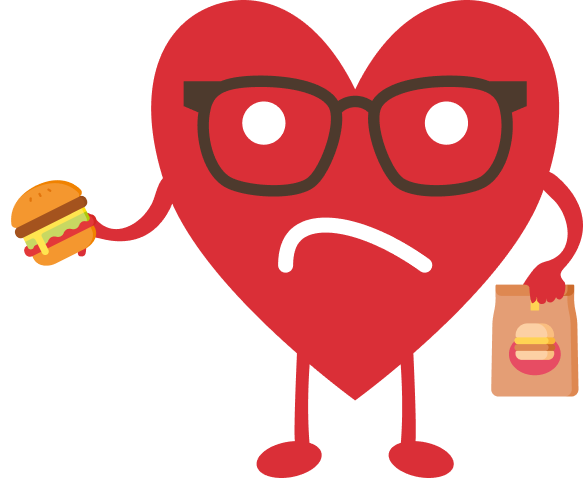Cholesterol
Cholesterol is a group of blood fats known as lipids, and we all need some to stay healthy. Too much can cause serious health problems which are preventable including heart attacks and strokes. For most people too much cholesterol is due to an unhealthy lifestyle, though some people are born with genetics causing high cholesterol.


Here are some things you need to know about cholesterol
What causes high cholesterol?
Several things often combine to cause a high cholesterol but can include:
- An unhealthy diet and weight
- Smoking
- Lack of exercise
- Too much alcohol
- Diabetes or other illness such as an underactive thyroid
- Familial hypercholesterolaemia (FH) is an important genetic form of high cholesterol and affects around 1 out of every 250 people. FH causes premature heart disease, often under 60 years, but sometimes much younger and even in children. The good news is FH can be diagnosed, and effective treatment started, in childhood, usually around the age of 10 years. The UK is taking steps to improve the identification of FH now genetic testing is more readily available. When a person is found to have FH, cascade testing is a means by which a whole family can be offered screening for the condition. For others, a single cholesterol blood test in young people is an easy way to check for FH to reduce the risk of early CVD.
Why should I lower my cholesterol?
Changing to a healthy lifestyle and using drugs treatments to lower cholesterol reduces your risk of serious health problems. A high cholesterol directly causes blood vessel disease known as cardiovascular disease (CVD) which are preventable. These include:
- Atherosclerosis (fatty build up in blood vessels)
- Heart attack
- Angina
- Stroke
- TIA (mini stroke)
- Peripheral vascular disease (blood vessel disease in the legs)
- Aortic aneurysm (an abnormal bulge in the major blood vessel (aorta) which carries blood from the heart to rest of the body)
- Vascular dementia (a type of dementia due to damage to blood vessels in the brain)


How and when should I have a cholesterol check?
A simple blood test is all that is needed to check your cholesterol. Your doctor’s surgery can check your cholesterol at any age, but routinely offer NHS health checks from the age of 40, which include this blood test; you may be able to have a test through your local pharmacist or even at leisure centres. Everyone should have a cholesterol test at some point in their life and all adults over 40 who are not on cholesterol treatment, should have this rechecked every 5 years.
Even young and apparently healthy people can have high cholesterol due to FH. unfortunately, many young people don’t discover they have this condition until they have had a serious problem like a heart attack much earlier in life than expected. A cholesterol check as a young adult will tell you if you have FH, if this test is normal your next test doesn’t need to be until the age of 40. You should have this test particularly if you have a family history of heart attacks of strokes in relatives under the age of 40.
How do I understand the Cholesterol blood test?
More than one type of fat is tested on a cholesterol check and understanding the result can be complicated.
Here’s what a cholesterol result may include and what it means. You should ask your clinician what your personal target should be as this may vary depending on your health conditions.
| Type | Description |
|---|---|
| Total cholesterol | The sum of all the fats in the blood, good and bad. |
| LDL-C (Low density lipoprotein cholesterol) | One of the main bad fats. The level should usually be less than 1.8mmol/L or as low as possible. |
| HDL-C (High density lipoprotein cholesterol) | This is the good fats, we need this to be healthy, and a high reading usually means you are eating a good diet. |
| Non-HDL-C (Total cholesterol minus the HDL-C) | This is all the bad fats and not just LDL-C and is used to guide treatment decisions. This should be 2.5mmol/L or less for most people who are taking medication for cholesterol. |
| Triglycerides | Another bad fat, often high if your diet is high in fat, have too much alcohol or your diabetes isn’t controlled. |
| Total cholesterol : HDL ratio | This is the relationship between good and bad fats in the blood and as a rule should be less than 4.5 but the lower the better. |
